Amazon Simple Storage Service (Amazon S3) is an object storage service offering scalability, data availability, security, and performance. Customers can store and protect any amount of data for virtually any use case, such as creating a data lake, cloud-native applications, and mobile applications.
Salesforce use cases with Amazon S3
We see typical use cases for connecting Salesforce with Amazon S3 for the following scenarios:
- Document management - The ability to offload files, contracts, PDF’s and expose them back into Salesforce via Salesforce Files Connect.
- Data archiving - It’s a common requirement to offload unneeded data from Salesforce to external platforms to avoid common issues such as large data volume implications.
- Backup and recovery - incremental backups at defined intervals is possible. Also Point-in-time recovery leverages S3 versioning and lifecycle policies, enabling easy recovery of Salesforce data in case of system failures or data corruption.
- Data Warehousing - enable organizations to perform advanced analytics, machine learning, and business intelligence tasks directly on data stored in Amazon S3.
Available integration approaches
There are several integration patterns available to seamlessly integrate Salesforce and AWS S3 ranging from out of the box declarative configuration right through to more complex programmatic options. Picking the right approach depends on several factors and business requirements, below we’ll highlight some of the common approaches and their benefits.
Amazon AppFlow
Amazon AppFlow provides a managed integration service facilitating bi-directional data flow between Salesforce and Amazon S3.
No customization is needed, and it offers automated workflows.
Custom Integration with API’s:
Direct access to Salesforce data via API’s (e.g., REST, Bulk) allows for custom integration with Amazon S3. Allows for tailor-made solution to cater specific business requirements, accommodating unique solutions.
Middleware and Integration Platforms:
Leverage middleware solutions such as MuleSoft, Informatica, or Dell Boomi to orchestrate complex integrations between Salesforce and Amazon S3.
These platforms provide pre-built connectors ,visual tools. Reduces development time and complexity.
AWS Lambda Triggers:
Utilize AWS Lambda to trigger functions in response to events in Salesforce. This serverless approach enables seamless integration and automation between Salesforce and S3.
The event driven architecture ensures real-time responsiveness, as actions are triggered immediately. Also, the pay per use model allows users to pay for the compute time consumed by functions.
Amazon S3 Connector:
The Amazon S3 Connector is a native Salesforce integration tool enabling users to interact with Amazon S3 buckets directly from within Salesforce. It provides pre-built tools and APIs to streamline data transfer.
Getting started using Amazon AppFlow with Salesforce
Getting started using Amazon AppFlow with Salesforce
There are several ways of integrating Salesforce with AWS S3, but getting started with AppFlow is one of the easiest and most simplistic approaches to get started with. Below learn how to set up AWS AppFlow and how to configure data sync between AWS S3 and Salesforce.
Steps
- Create an Amazon S3 bucket
- In amazon console create an Amazon Appflow and select source as Salesforce and click on connect
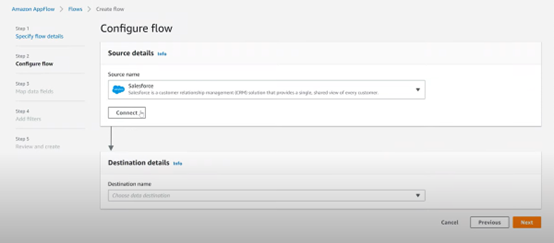
- Provide details of the salesforce org
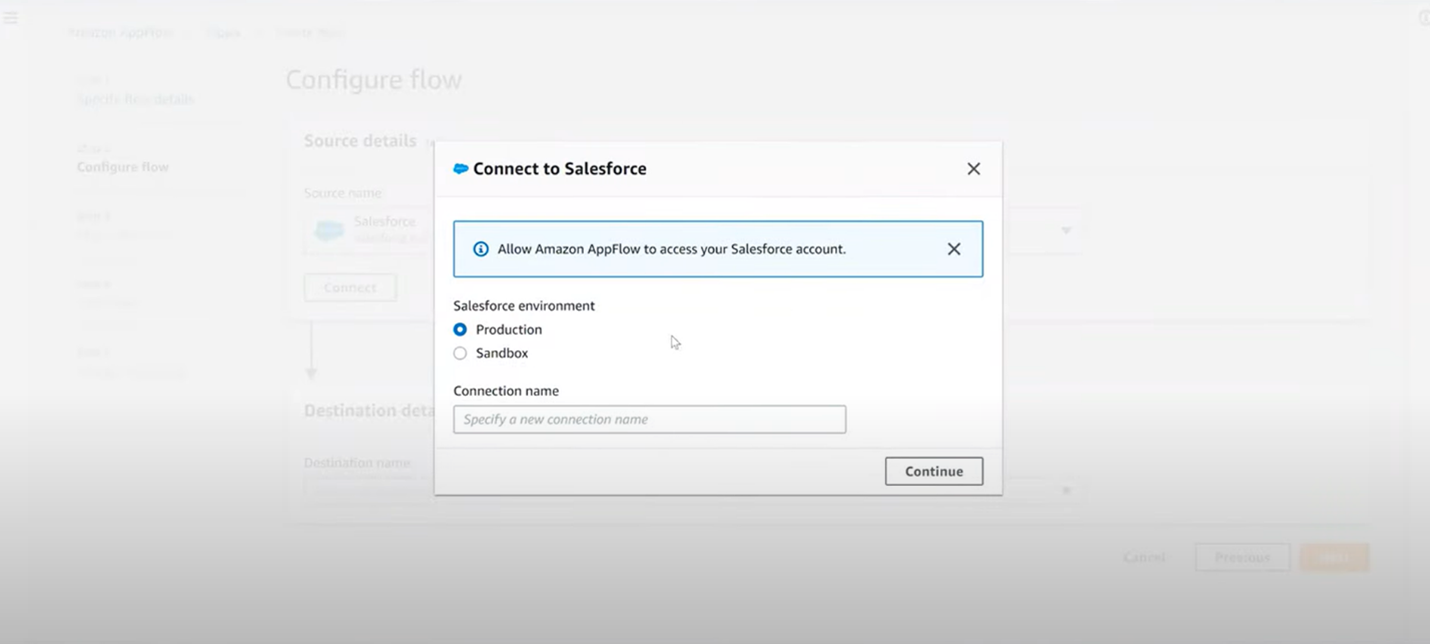
- Select the object of salesforce for which you want to do the data sync
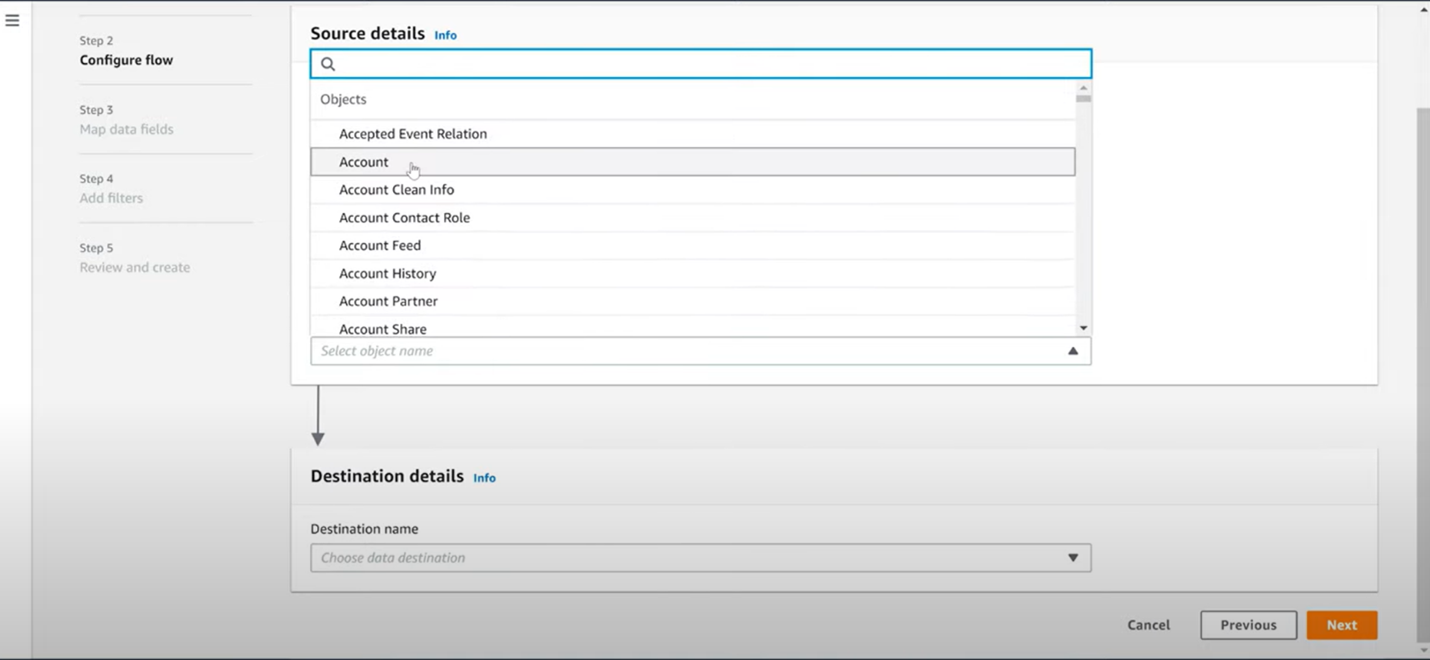
- After selecting the Object select the destination as Amazon S3 and provide the S3 bucket details
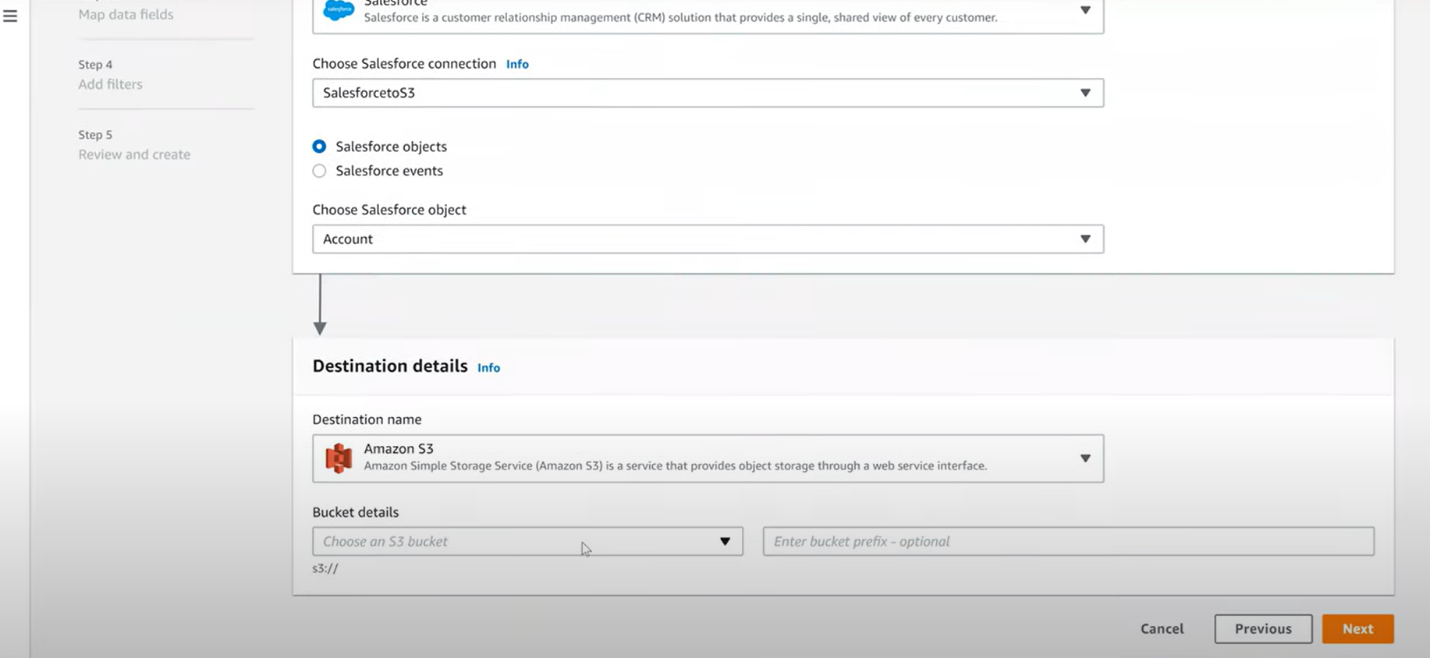
- The appflow can run on demand or can be scheduled
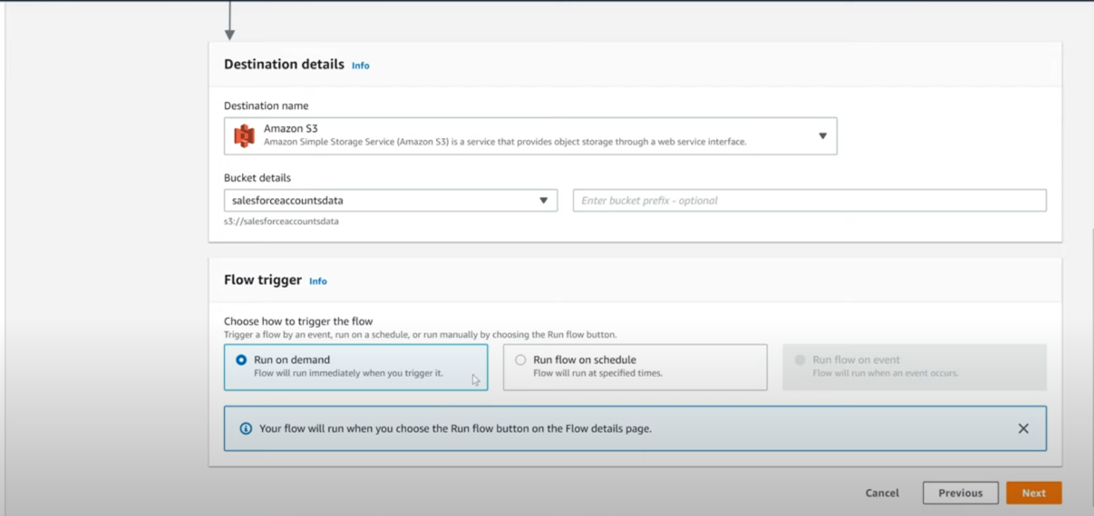
- Map the fields from the object either manually or with a csv mapping file
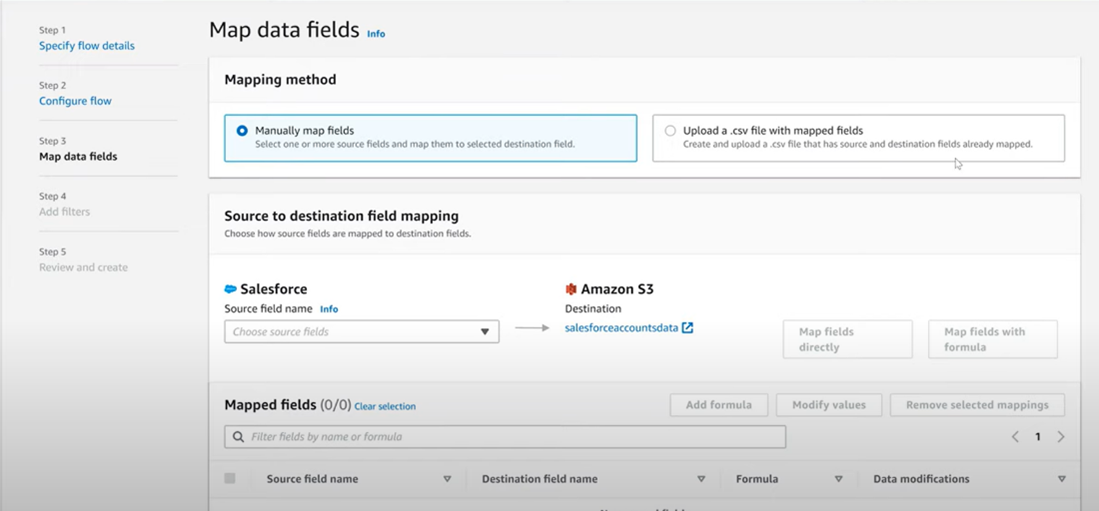
- You can also set validation to ignore the invalid data
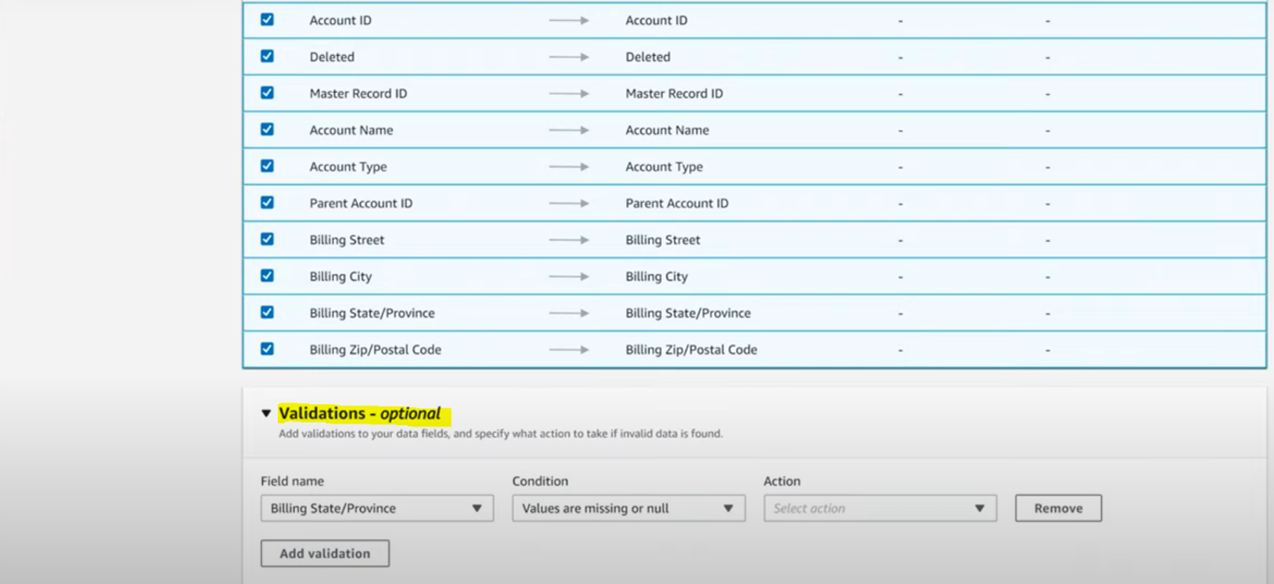
- You can also filter out which records you want to transfer
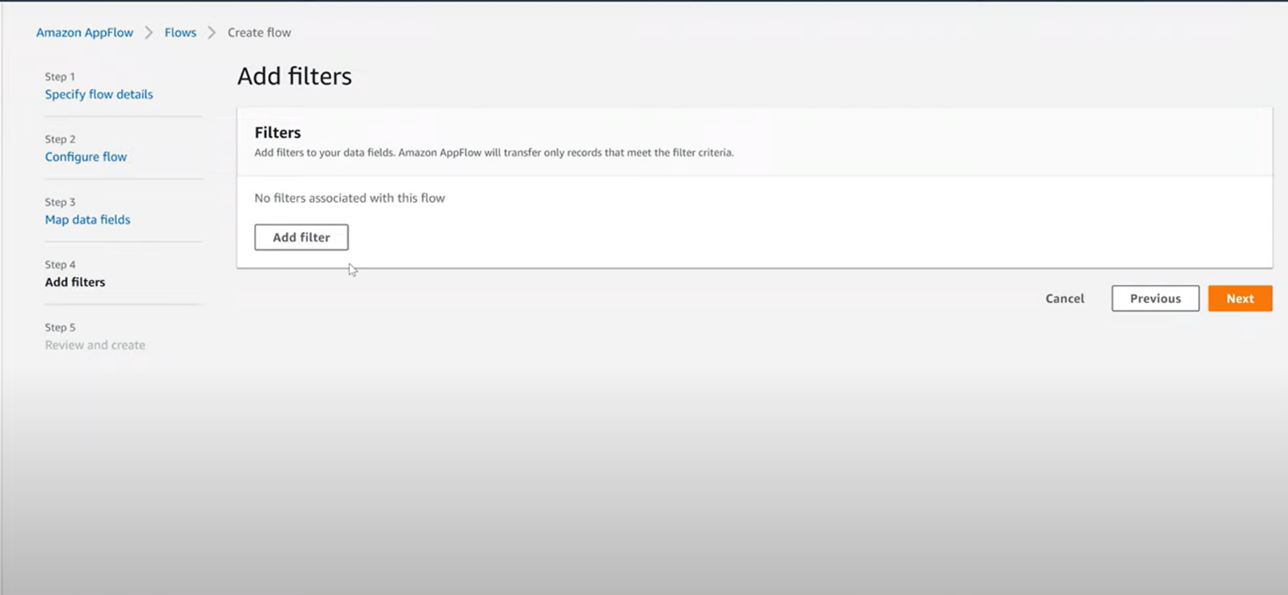
After finishing the steps, you can create the flow and then you can run the flow and it will transfer the data from salesforce to AWS in the S3 bucket and it will be stored in JSON format.
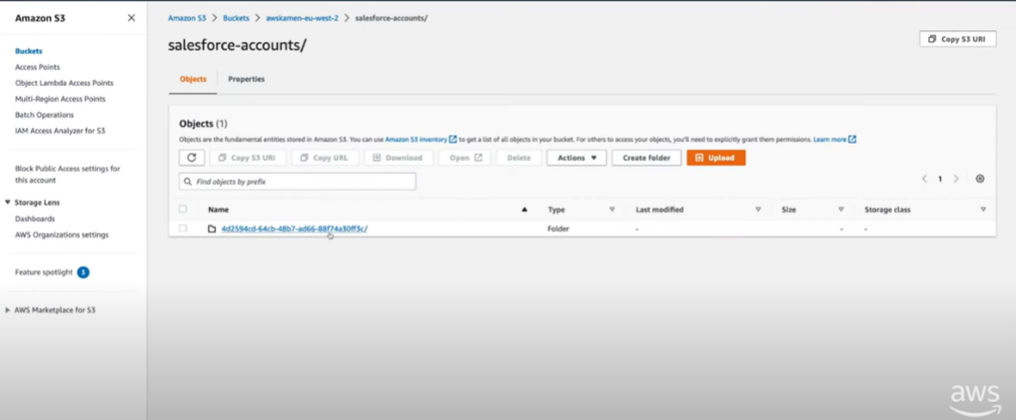
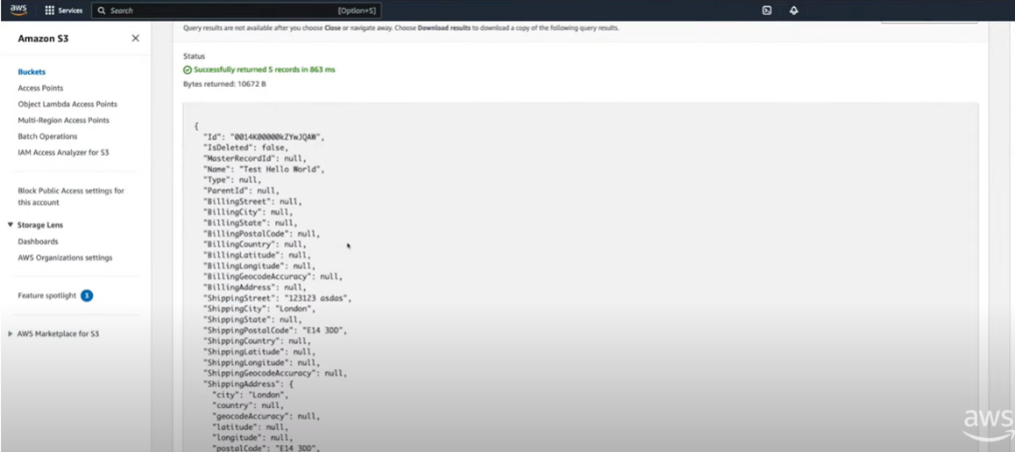
So, to summarize, it is a point-and-click approach to integrate the two cloud platforms and users without extensive technical knowledge can also set up this data transfer.
To make the data flow more secure between these two platforms, Private Connect is available through Amazon AppFlow, a fully managed integration service that enables you to securely transfer data between Salesforce and AWS services, like Amazon S3 or Amazon RedShift.
Please refer to the following deloitte engineering blog to learn more about Private connect: Private Connect - A Secure Integration between Salesforce and AWS
Our thoughts on AppFlow and Salesforce
Whether it is a user-friendly interface such as AppFlow or a more technical implementation using a programmatic approach, in our experience integrating AWS S3 and Salesforce offers practical benefits for business looking to optimize data management.
To get started take a look the following useful resources below: